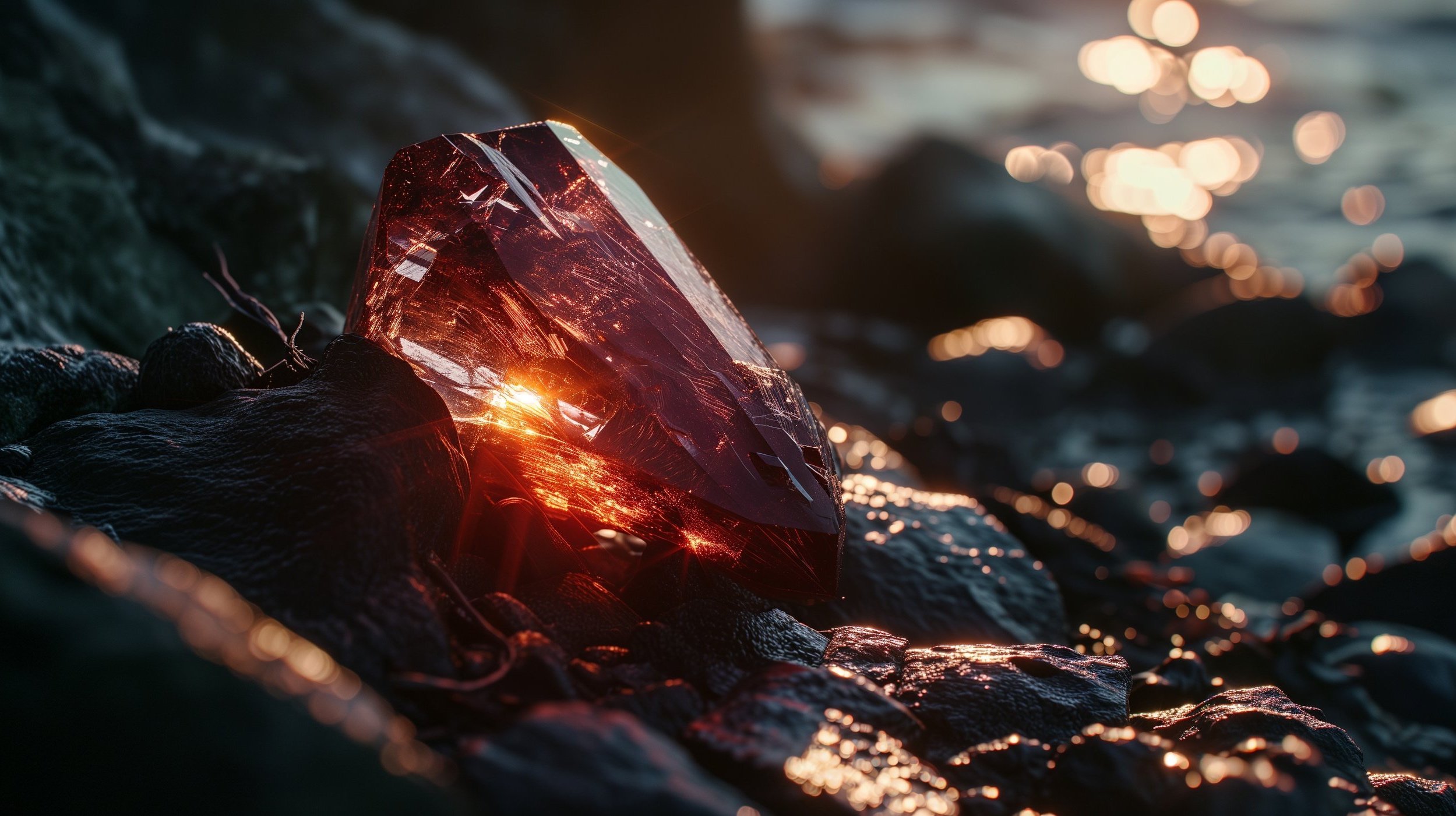
THE RISE OF
MODERN ATLANTIS

THE STORY OF
ATLANTEAN
EMPERORS

ATLAS XII
THE ARCHITECT

THE BIRTH OF MODERN ATLANTIS
Quick to see the potential in humanity living on the seas, it was young multi-billionaire Atlas Sobieski who was at the forefront of the creation of floating cities. Initially, these cities were envisioned as a utopia for the wealthy, with minimal regulations and no taxes, modeled after Monte Carlo. The world's major corporations and wealthiest individuals flocked to Atlantis upon its founding in 2042. Atlas oversaw the creation of a spectacular floating metropolis in the Pacific, which enjoyed the right to the ocean within 12 nautical miles and a 200 nautical mile exclusive economic zone under international law. As a result of his vision and leadership, Atlantis became far wealthier than Atlas had ever imagined.

A troubled start
Having attracted many of the world’s largest corporations to the new country he created, and being finally recognised by the United Nations in 2046, the fledgling Atlantis became a nightmare of bureaucracy and warring factions seeking to control the new nation. Atlas, disenfranchised by the greed and lack of honor he saw, attempted to first bring in regulations giving corporations a social conscience and social responsibility to offset what he saw was the rampant greed which had ensued.

Uprising
This change, however, did not go done well. With billions, potentially trillions on the line, factions formed attempting to dispose Atlas as the democratically elected leader of Atlantis. With elections years away, there were a number of attempts on the life of Atlas. This culminated in what is now commonly referred to as the great ‘Brutus 2.0’ moment with 50 members of the senate, who had effectively purchased their positions in the body, trying to together assassinate Atlas at the State of the Nation speech through the use of their Orichalcum swords.

Spartans to the rescue
The assassination attempt on Atlas was thwarted by the Spartan Guard, with foreshadowing by Atlas himself. Despite sustaining serious injuries, Atlas survived the attempt in what can only be described as a miracle. Unbeknownst to almost anyone, it had been prophesised to Atlas by his father that this attempt on his life would happen. Atlas, having never truly trusted his father, now, did believe. As such, Atlas finally released a hidden weapon he possessed, which after fulfilling its purpose, would be lost, potentially for eternity.

Exile
Having come upon such powerful enemies, even Atlas himself was forced to flee Atlantis. Details are very scarce as to what happened next, but worldwide shipping and distribution was hit by the largest shock it had seen in centuries. In events that can only be described as being similar to 20,000 Leagues Under the Sea, an unknown vessel was roaming the ocean and selectively choosing targets associated with the would be assassins of Atlas. As a point of interest given the reference to 20,000 leagues, Atlas would in his later years claim that his father had known Verne, which was of course seen by most as the ramblings of a crazy old Emperor.

A Wonder Weapon
The many factions and corporations left in Atlantis were soon subdued by the dreadful cost of what most, without proof called Atlas’ ‘wonder weapon’. Atlas as such rode triumphantly back into Atlantis in 2049. Whilst still the entrepreneurial individual he had always been, something inside him had changed in realisation that his father had been right about him and his future.

An Empire is born
Atlas declared the cities of Atlantis to be an Empire, with himself as Emperor. Claiming to be the son of the Greek God of the Sea himself Poseidon, he declared himself the twelfth Atlas to sit upon the Atlantean throne, following the reign of Atlas the eleventh who ruled some hundred years before the fall of Atlantis… nearly 12,000 years before.

No-Man
As a former military man, Atlas the XIIth provided an explanation for his claim and the events of the past year. He recounted a remarkable encounter during his youth when he was on a military expedition. Atlas claimed to have met a man who called himself 'No-Man', who possessed an underwater vessel of unparalleled technology that could not have existed at that time. Astonishingly, the man also claimed to be Atlas's long-lost father. Atlas harnessed the power of the vessel's technology to exponentially increase the rate of creation of Atlantis. This revelation shed light on the city's rapid technological advancement and its deep-rooted ties to an extraordinary past.

The Nautilus
According to rumor, the mile-long vessel has long since disappeared from the annals of history. Until his final breath, Atlas the XIIth would attest that the ship played an integral role in establishing the Empire. He claimed to have even seen the vessel's name inscribed on the bridge, yet he remained tight-lipped on what that name might have been.

The way of Aqua
Initially, the claims were widely ridiculed in the West and dismissed as Atlantean propaganda. However, after reports began to circulate about the remarkable abilities of the self-proclaimed Emperor and his offspring, public opinion shifted. Strange occurrences connected to the Imperial family began to surface soon after the Emperor's ascension to power and acceptance of his imperial destiny. These anomalies suggest an eerie and otherworldly connection to water itself, including the uncanny ability to anticipate its movements, whether it be the weather, storms, or even individual waves.

Orichalcum
Although these claims remain unverified even a century after the Empire's rise, there appears to be a connection between the Imperial Family and the performance of Orichalcum. Although its purity determines its quality, it is rumored to radiate a vivid red-orange color when used by the royals. Additionally, there have been accounts of peculiarities concerning water and the Imperial Family. However, there is a lack of substantial evidence to confirm this, and security sources typically regard it as an elaborate hoax intended to embellish the reputation of the Atlantean Royals.

Atlas XIII
the Just

Atlas XIII: the Just
Atlas the XIIth governed Atlantis until his death in 2069, after which he was succeeded by his son, Atlas the XIIIth. During a period of significant oceanic expansion, Atlas the XIIIth, also known as "Atlas the Just," was regarded as a fair and equitable ruler. However, by the time of his passing in 2096, Atlantis had become weaker than when he assumed power. Despite this, he is credited with having established Atlantean culture and justice throughout the Pacific and Atlantic regions. He achieved this not through conquest, but through cultural dissemination, spreading the values of Atlantis worldwide.

Atlas XIV
the GREAT

Atlas IV: the Great
Following Atlas the XIIIth came Atlas the XIVth, known by many names among the Atlanteans, including Atlas the Sun King and Atlas the Water King, but above all as Atlas the Great. He expanded the Empire in ways that knew little bounds, stretching from the Pacific to the Indian and Atlantic Oceans. Atlas the XIVth is credited with establishing the world's greatest empire. His love of nature and the environment led to the creation of the greenest nation on Earth, with entire floating cities dedicated to air purification, CO2 scrubbing, and other advanced technologies. His use of fusion reactors on both the North and South Poles is credited with saving both polar ice shelves. Even his most ardent critics concede that Atlas the XIVth was a great benefactor to nature on the planet.

A TASTE FOR THE PAST
Atlas the XIVth was a passionate admirer of the French Renaissance period, a fact reflected vividly in his architectural ventures. His most notable tribute to this era was the majestic wing of the Imperial Palace, based on the Palace of Versailles that he commissioned in Atlantis Prime. This grand palace was not a mere reproduction, but a remarkable homage filled with Atlantean nuances. Every corner of the palace, from its shimmering hall of mirrors to its vast and perfectly manicured gardens, echoed the glamour of the French royal court, albeit intertwined with the technological prowess of Atlantis.
Under Atlas XIV's reign, the floating city was awash with the romantic allure of Renaissance culture, its aesthetic beauty magnified by the fusion of classical architecture and avant-garde technology. The royal court came to reflect this cultural mélange, radiating an atmosphere of refinement, sophistication, and artistic exuberance, synonymous with the Renaissance.

Shifting borders
While Atlas the Great is recognized for his accomplishments in expanding the borders of Atlantis and for his efforts to protect the environment, it should be noted that he also made significant investments in military technology. With the world engulfed in decades of war between the floating cities, Atlas recognized the need to maintain a strong military presence. He invested in armed forces, mechas, and crafts, which led to Atlantis becoming one of the most powerful military forces in the world, even when compared to land-based nations.

ATHOS
the FIRST

THEIR FATHER’S SONS
Despite the multitude of accomplishments attributed to Atlas the Great, his paramount achievement lies not in his exploits but in the legacy he left behind: his son, Emperor Athos. The christening of Athos signaled a new era for Atlantis, an evolution beyond the storied Atlas Dynasty.
During the twilight years of Atlas the Great's reign, as the relentless oceanic conflicts approached their zenith, Athos, alongside his brother Ajax, grew into maturity, witnessing their father's influence shaping the world. A fervent belief of Atlas the Great was that being descendants of the technologically advanced Atlantis of yore, the Atlanteans were exceptional and held a profound obligation to illuminate the world with Atlantean values, chiefly, Hope. Moreover, he was always eager to highlight their royal lineage's divine connection to the God Poseidon. These beliefs significantly influenced the worldview of Athos and Ajax.

TRAGEDY STRIKES
However, this worldview was tragically shattered when their father, Atlas the Great, was assassinated. During a peace summit in New York, an unknown assailant struck, resulting in the death of several world leaders, Atlas included. It's hard to encapsulate the devastation experienced by Athos and Ajax who revered their father; their commitment to seeking justice for his murder consumed them. The suspects ranged from Rome to the nations of the Eastern Pacific, assuring that peace was far from sight.
While Atlas was revered as the Great, Athos is celebrated as the Warrior King, who expanded Atlantis' frontiers across the globe. The influence of Ajax, a somber, martial figure and Athos's most trusted advisor, should not be underestimated. Following the death of Atlas, Atlantis saw an exponential expansion across the seas.

A CHANGE OF HEART
Many feared that Athos's aspirations would know no bounds, potentially igniting terrestrial conflicts. However, these fears abated when he encountered the Queen of Australis, a collection of floating cities nestled between Australia and New Zealand. Despite strategic marriage proposals, Athos chose love over convenience, wedding the benevolent yet resolute Queen. It is broadly recognized that this union curbed Athos's expansionist desires. Even so, attacks on Atlantis in 2125 from multiple fronts, exploiting the Emperor's newfound pacifism, seem to have coerced him into action.

HEIGHT OF THE EMPIRE
Now, in the year 2126, Athos and Atlantis govern the majority of the oceans, barring the Atlantic and Indian seas. Although other realms and principalities such as Midgard, the Spartans, the Saharans, the Amazonians, and Ra still persist, most of them yield to the Emperor. Atlantis has risen to become the most extensive empire the world has ever witnessed, inciting unease amongst the US and European floating cities who suspect Atlantis' terrestrial ambitions. Given the Atlantean populace's diverse roots spanning US, European, and East Asian backgrounds, such a thought was once considered inconceivable...















